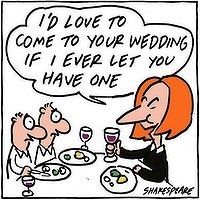 Many politicians appreciate the freedom for debate and personal reflection that comes with conscience votes, but this is exactly why they are so dangerous. For conscience votes have the potential to undermine one of the defining principles of secular liberal democracy: the separation of religion and politics. This is a peril that will be clearly observable in the debate over same-sex marriage at the upcoming ALP conference.
Many politicians appreciate the freedom for debate and personal reflection that comes with conscience votes, but this is exactly why they are so dangerous. For conscience votes have the potential to undermine one of the defining principles of secular liberal democracy: the separation of religion and politics. This is a peril that will be clearly observable in the debate over same-sex marriage at the upcoming ALP conference.
To see this threat to our civic way of life, we need to remember that elected politicians occupy public offices to represent their constituents and to serve the public interest. How though should we understand the link between representation and the public interest?
Political theory offers a few answers to this question. One is that politicians are trustees, appointed by their electors to represent their interests in virtue of their superior legislative and public policy knowledge – because they know better. When prime minister John Howard introduced strict gun laws despite their unpopularity in his rural support base, he was acting as a trustee of the public good.
For the full article, click here
